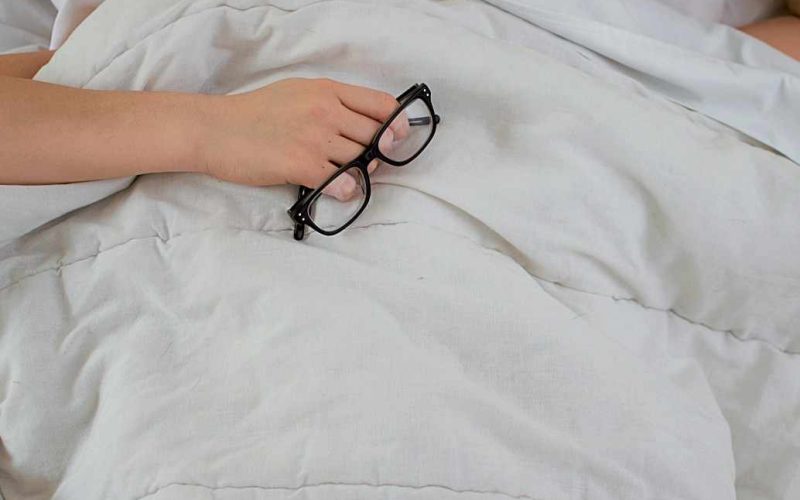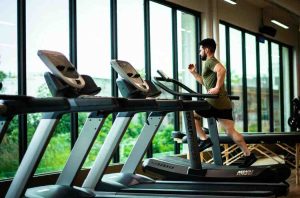Do you ever find yourself tossing and turning at night, wondering why you can’t seem to get a good night’s sleep? You’re not alone. In our fast-paced society, sleep tends to take a backseat as we juggle numerous responsibilities. But what if I told you that there is a game-changing solution right at your fingertips? Introducing sleep tracking – the secret weapon to unlocking better health and vitality. Join us as we delve into why everyone should prioritize sleep tracking and discover the key to finally achieving that elusive restful slumber. Trust us, once you uncover the power of understanding your sleep patterns, you’ll wonder how you ever lived without it!
Benefits of Sleep Tracking
There are many benefits of sleep tracking, the key to better health. When you track your sleep, you can see patterns that emerge over time that can help you make changes to improve your sleep quality. You may find that you need to adjust your bedtime routine or sleeping environment, or make other lifestyle changes. Sleep tracking can also help you identify underlying health conditions that may be affecting your sleep quality. If you have a medical condition, such as sleep apnea, tracking your sleep can help your doctor determine the best course of treatment.
Types of Sleep Trackers
Sleep trackers come in a variety of shapes and sizes, each with its own unique set of features. The most popular sleep trackers on the market today are:
-Wearable devices: These devices can be worn on the body, typically on the wrist, and use sensors to track sleep patterns. The data is then synced to an app or website for analysis.
-Non-wearable devices: These devices are placed under the mattress or pillow and use sensors to track sleep patterns. The data is then synced to an app or website for analysis.
-Smartphone apps: There are many smartphone apps that claim to track sleep, but most only track movement and sound. The data from these apps is typically not as accurate as data from wearable or non-wearable devices.
Regardless of which type of sleep tracker you choose, the important thing is that you find one that works for you and that you use it consistently.
Features to Consider When Choosing a Sleep Tracker
There are a few key factors to consider when choosing a sleep tracker. The most important factor is accuracy. Look for a sleep tracker that uses accelerometers or other reliable data sources to track your sleep patterns.
Also important is ease of use. The best sleep trackers are those that can be easily worn and operated without getting in the way of your daily routine. Additionally, look for a sleep tracker with features that fit your lifestyle and needs. For example, some trackers have alarmed that can wake you up at a specified time, while others include automatic activity logging to help you better understand how your physical activity affects your sleep quality.
Consider battery life when selecting a sleep tracker. Some devices need to be charged nightly, while others can last for several weeks on a single charge. Choose the device that best fits your usage needs.
Top Sleep Trackers and Their Features
To help you find the best sleep tracker for your needs, we’ve compiled a list of our top picks, along with their key features.
One of the top sleep trackers on the market is the Fitbit Charge 3. This versatile tracker not only tracks your steps and heart rate but also monitors your Sleep Stages (light, deep, and REM) and time spent awake during the night. It also comes equipped with REM Sleep Tracking, which uses gentle vibrations to wake you up at the optimal time in your sleep cycle.
Another great option is the Oura Ring, which is specifically designed for tracking sleep. It monitors your heart rate, body temperature, and respiration to give you an accurate picture of yoursleep cycles. Plus, it offers detailed insights into your bedtime routine and sleep position.
The SleepScore app is another top pick for tracking sleep. This free app uses a combination of technology from three different devices—including audio sensors, motion sensors, and facial monitors—to track yourSleepScoreand give detailed insights into how to improve your rest.
Finally, the Beddit Sleep Monitor is a great option for those who want to take their sleep tracking to the next level. This device is placed underneath your mattress and tracks movement, sleep cycle stages, heart rate, and respiration. It’s also compatible with many popular smart home devices.
Conclusion
Tracking your sleep is an important part of achieving better physical and mental health. Sleep tracking can help you identify existing issues with your sleeping pattern, while also giving you the information to take corrective action. With this newfound insight into your body’s natural rhythm, it’s now easier than ever before to make small changes that go a long way in improving not only the quantity but also the quality of your sleep. As such, if you’re looking for ways to improve overall health and wellbeing then it might be time to invest some effort into understanding more about how much—and how well—you are sleeping at night.











